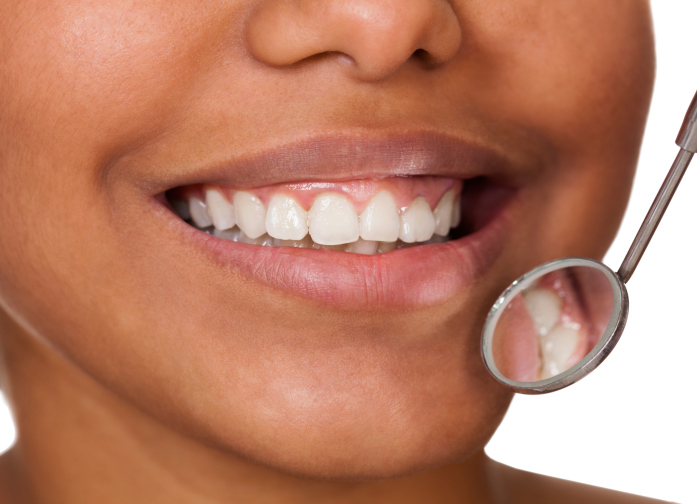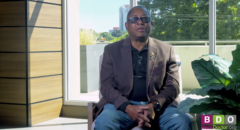 The outer surface of your teeth, called enamel, is designed to last a lifetime. In fact, did you know it is the hardest substance in your body?
The outer surface of your teeth, called enamel, is designed to last a lifetime. In fact, did you know it is the hardest substance in your body?
Some wear and tear of tooth enamel is inevitable. But there are some surprisingly basic things you may be doing to damage it even more.
Here are seven habits to work on today for a healthier, brighter smile tomorrow.
1. Don’t Eat So Much Sugar
Sugar leads to the production of acids in the mouth, which soften and eventually wear away at enamel. Chewy candies that stick on your teeth are particularly damaging. So are soft drinks. Along with sugar, soft drinks may contain citric acid and phosphoric acid, making them even more acidic. Artificially sweetened soft drinks are a smarter choice than sugary soft drinks. But sugarless sweeteners are acidic and may erode enamel over time. The best choice when you’re thirsty: a glass of water.
2. Get More Calcium
Calcium in foods neutralizes acids in your mouth. Calcium is also an essential mineral needed to keep bones strong. Milk, cheese, and other dairy products all help protect and strengthen enamel, says Pamela L. Quinones, RDH, president of the American Dental Hygienists’ Association. Choose low-fat or fat-free dairy to help keep fat and calories to a minimum. If you frequently drink orange juice, O.J. with added calcium may be the best choice. Calcium buffers the normal acidity of orange and other citrus juices.
3. Stop Over-brushing
Brushing too vigorously can wear down enamel. “Always use a soft brush and brush gently,” says Seldin. Hold the brush at about a 45-degree angle to your gums and move it back and forth in short strokes, about the distance of one tooth. Don’t brush immediately after eating sweets or citrus fruits. Acidic foods temporarily soften enamel and may make it more susceptible to damage from brushing. Wait for up to an hour after you eat, giving your enamel time to re-harden. Then brush your teeth.
4. Have Heartburn? Stop Ignoring It!
With severe heartburn, stomach acids may escape up into the esophagus. If those acids reach your mouth, they can erode enamel. If you have symptoms of heartburn, talk to your doctor about treatment.
5. Learn About Dry Mouth
Saliva helps wash away food and bacteria that can lead to cavities. Saliva also neutralizes acidic foods. People with xerostomia, or very low salivary levels, often show signs of enamel erosion. Drink water often to keep your mouth clean and moist. If you exercise strenuously, be sure to rehydrate during and after your workout. Chewing sugarless gum or sucking on sugarless hard candy can stimulate saliva production. Some medical conditions and certain medications can cause dry mouth. If dry mouth persists, talk to your doctor.
6. Stop Grinding Those Teeth
Some people grind their upper and lower teeth together, especially at night. “Over time, grinding can wear down the enamel surface and destroy teeth,” says dentist Richard Price, DMD, a spokesperson for the American Dental Association. “If you notice yourself clenching your jaw or grinding your teeth, talk to your dentist.” Custom-fitted tooth guards can help protect teeth from damage.
7. Stop Avoiding The Dentist
To keep your enamel strong, see your dentist every six months for a check-up and teeth cleaning. Your dentist can spot signs of trouble, such as cavities or tooth grinding, before they do extensive damage to your enamel. Your dentist will also make sure that you’re getting the right amount of fluoride to protect your teeth. Fluoride hardens and protects tooth enamel. If your water supply is not fluoridated, ask your dentist if you need to take extra steps to protect your teeth. Your dentist may recommend fluoride supplements, mouthwashes, or coatings for your teeth.









